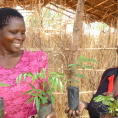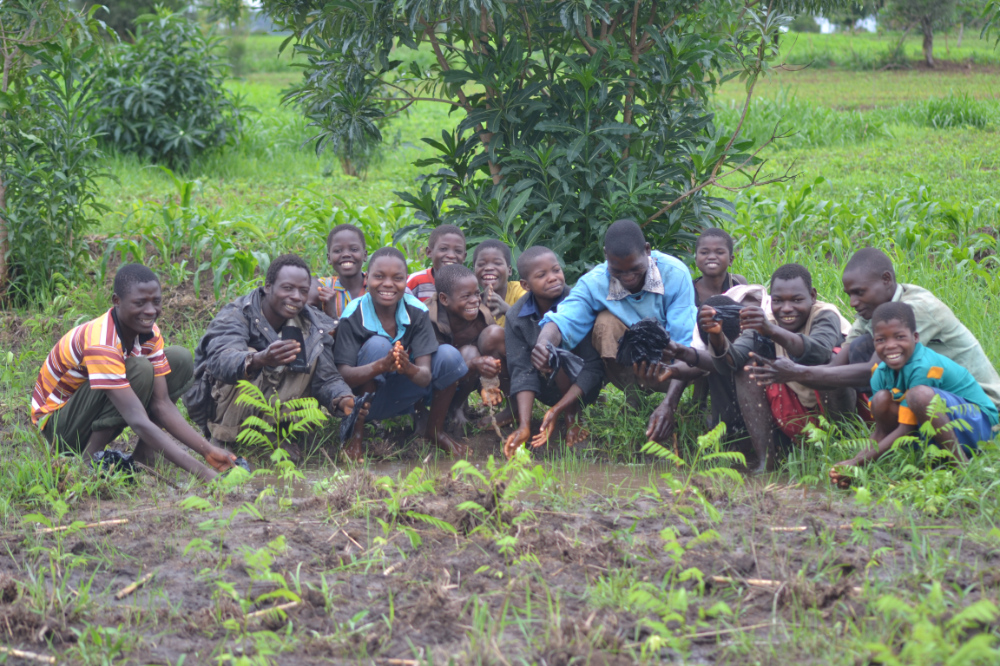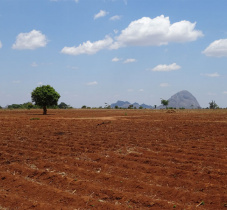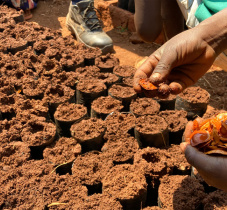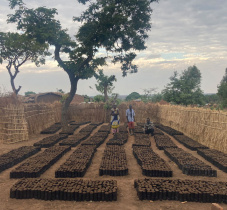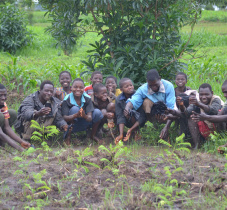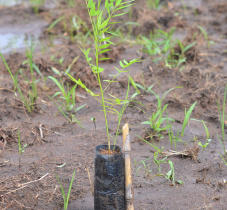Project description
Support the planting of hedgerows in Malawi!
The project at a glance
Number of trees to be planted: 100,000
Species planted: acacia, albizia, khaya.
Type of project: planting hedgerows on degraded agricultural land
Planting period: between December 2021 and January 2022
Context
In Malawi, deforestation is responsible for the loss of approximately 33,000 hectares of forest every year. In this country where subsistence farming is the norm, the forest cover is disappearing to make way for crops. In addition, logging to meet the energy needs of the population and illegal wood trafficking, coupled with the effects of global warming, are endangering the forest as well as people’s resilience. Yet, trees are a precious resource for the population, whose density continues to grow.
In several villages of the Lilongwe district, center of the country, 300,000 trees are being planted over three years to form hedgerows. In this rural area where human activities have severely degraded the forest, agroecosystems must be restored to ensure the subsistence of local communities.
The project, supported by Reforest'Action, will be deployed on site by the NGO Inter Aide, which implements development programs for rural families in several African countries. This approach will increase the energy autonomy and the standard of living of the inhabitants of the reforested areas. The trees planted will have environmental benefits: they will prevent soil erosion, restore their fertility and their ecosystem functions.
Planting project
The hedgerows are planted around agricultural lands that are highly degraded and therefore less productive. This approach will help restore the land’s environmental functions without encroaching on the space reserved for crops. The species introduced are diverse: acacia, albizia, khaya etc.
Seeds and seedlings come from Malawi and are put in nurseries before being planted in agroforestry. The maintenance of the nurseries and plantings are realized by the local communitie with the support of Inter Aide.
Benefits
The trees are planted on agricultural land on which 1800 people depend. The presence of hedgerows in the area will bring multiple benefits :
- Improving the energy autonomy of the families
- Limiting soil erosion and restoring soil fertility to increase the resilience of agricultural land
- Increasing the income of local producers
- Providing an alternative to slash and burn agriculture, which destroys and prevents the forest cover from regenerating
- Increasing the presence of biodiversity within the crops



